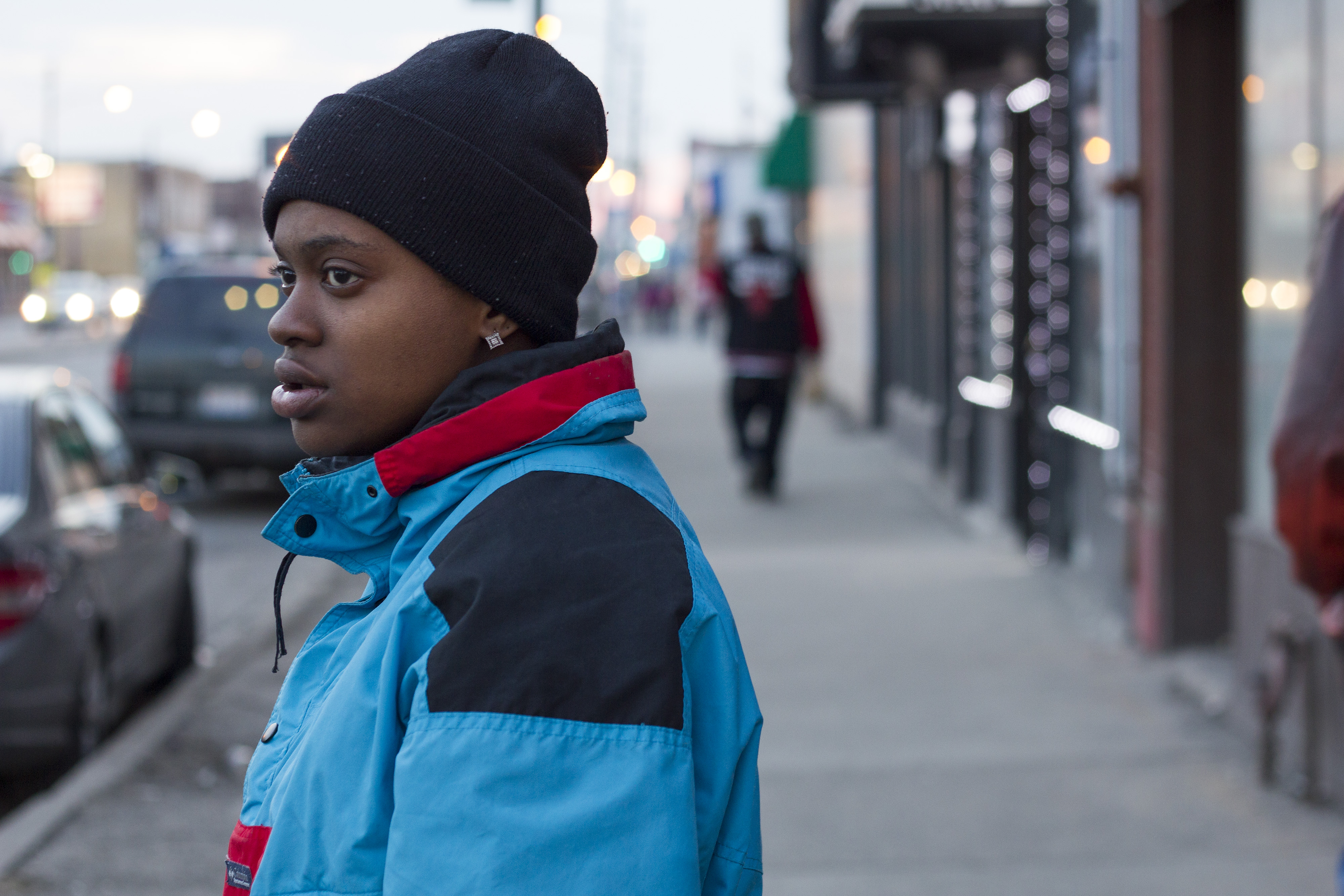Last year, there were more than 22,000 students registered homeless with CPS. Of them, about 19,500 lived doubled-up with other families, while the rest stayed in foster care, shelters, and public spaces (parks, trains, underneath cars). Their totals jumped eight percent in 2012 and 18 percent in 2013, and at last count, there were 1.2 million like them nationally. A likely cause for the inflation: They're experts at blending in, and more often than not, look just like their peers.
It's that distinction that directors Anne de Mare and Kirsten Kelly make in The Homestretch, a documentary getting its national premiere Monday on PBS. The film, which tracks three Chicago teens as they climb out of transience, presents homelessness not as a pathology but as a circumstance, ubiquitous but escapable. As one youth worker puts in on screen: "[Homelessness is] a situation. It's not who you are."
The subjects are Roque, Kasey, and Anthony, and their pasts are awful. Roque, an undocumented immigrant, was abandoned by his father years ago and eventually taken in by a teacher. Kasey, verbally abused to the point of hair loss after coming out as a lesbian to her mother, lives at Teen Living Programs's Belfort House, which helps youths ages 14 to 24 achieve independence (they have a 74 percent employment rate in alumni). Anthony, transient since 14 and abused by a skein of step- and foster parents, got on the TLP waiting list after a robbery charge and also lives at Belfort House. Each kid has a goal (college for Roque, graduation for Kasey, a job to support his six-month-old for Anthony), and the narrative tracks their progress. In the hands of de Mare and Kelly, it's impossible not to root for them.
The Homestretch is also worth watching from an infrastructure standpoint: It shows how teen homelessness happens, the problems with how the city and state address it, and how organizations such the Night Ministry, an emergency youth shelter in Lake View, struggle to fix it. But with a steady increase in homeless youth across the city, the Night Ministry must turn away dozens at nightly intake (they only have 20 beds). By the end of the film, the organization runs out of funding entirely.
Elsewhere, de Mare and Kelly offer a portrait of CPS's homeless liasons—nurses, counselors, and teachers asked to take on the legally implemented role—showing untrained staffers tracking hundreds of students per school, often with nothing to offer but CTA tokens. In the end, Homestretch is story of a broken system, not broken people. After watching, one can't help but wonder if a small tweak in policy could make a world of difference for thousands of youth.
The Homestretch premieres on PBS's Independent Lens Monday, April 13 at 9 p.m.




